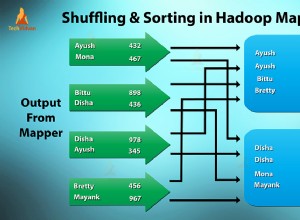Se hai a che fare con un set di dati di grandi dimensioni, suggerirei di considerare di implementarlo come prova. Ho messo insieme un po' di Ruby che farebbe questo:
require 'rubygems'
require 'redis'
class RedisTrie
TERMINAL = '+'
def initialize(prefix)
@prefix = prefix
@r = Redis.new
end
def add_word(word)
w = word.gsub(/[^a-zA-Z0-9_-]/, '')
key = "#{@prefix}:"
w.each_char do |c|
@r.zset_add key, c.bytes.first, c
key += c
end
@r.zset_add key, 0, TERMINAL
end
def add_words(*words)
words.flatten.compact.each {|word| add_word word}
end
def suggest(text)
@r.zset_range("#{@prefix}:#{text}", 0, -1).map do |c|
(c == TERMINAL) ? text : suggest(text + c)
end.flatten
end
end
rt = RedisTrie.new('trie')
rt.add_words %w( apple automobile carwash oil-change cranky five ruthie axe auto )
p rt.suggest(ARGV.shift.to_s)
Ad esempio:
$ ruby RedisTrie.rb
["apple", "auto", "automobile", "axe", "carwash", "cranky", "five", "oil-change", "ruthie"]
$ ruby RedisTrie.rb a
["apple", "auto", "automobile", "axe"]
$ ruby RedisTrie.rb au
["auto", "automobile"]
$ ruby RedisTrie.rb aux
[]
Per saperne di più su Tries alla voce di Wikipedia su Tries.
Sicuramente vorrai ottimizzare il tuo metodo di suggerimento per non restituire TUTTI i valori, restituendo invece solo i primi valori X che trova. Sarebbe vanificare lo scopo di iterare l'intera struttura dei dati.




